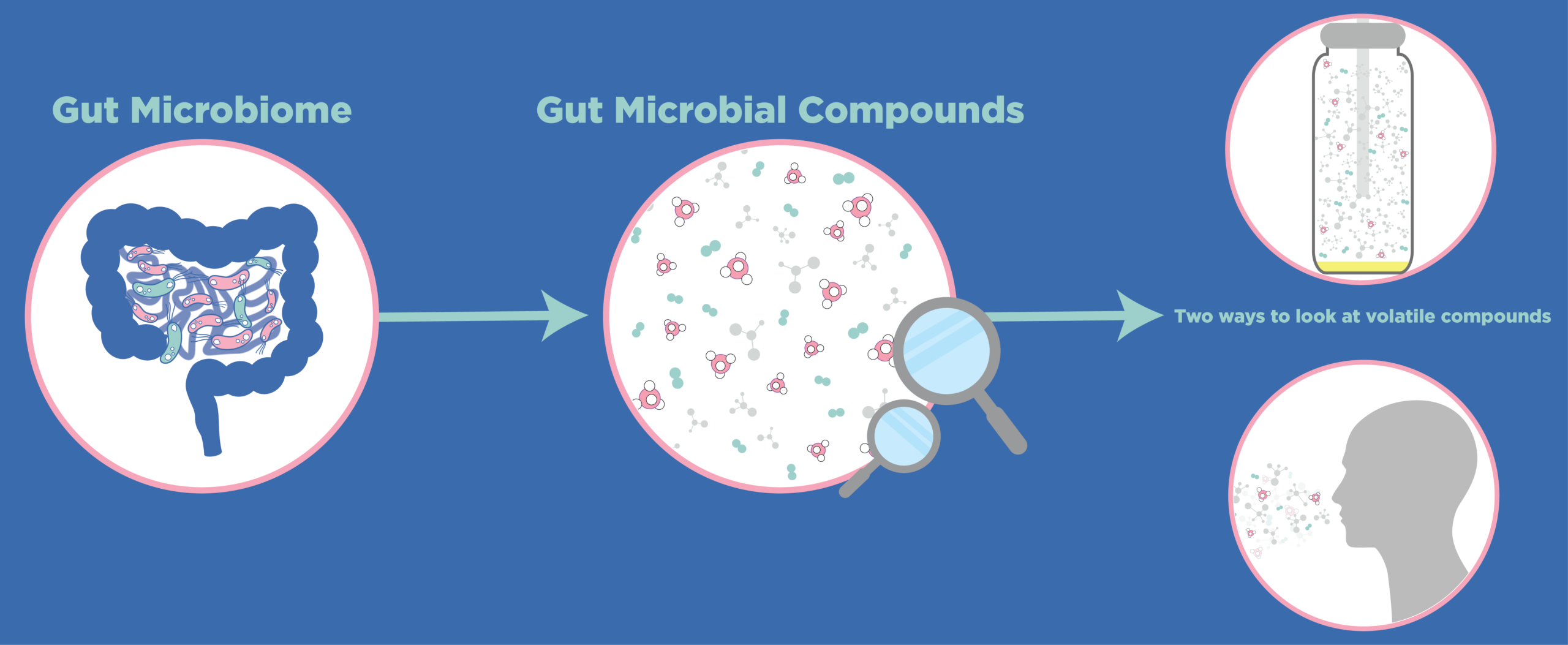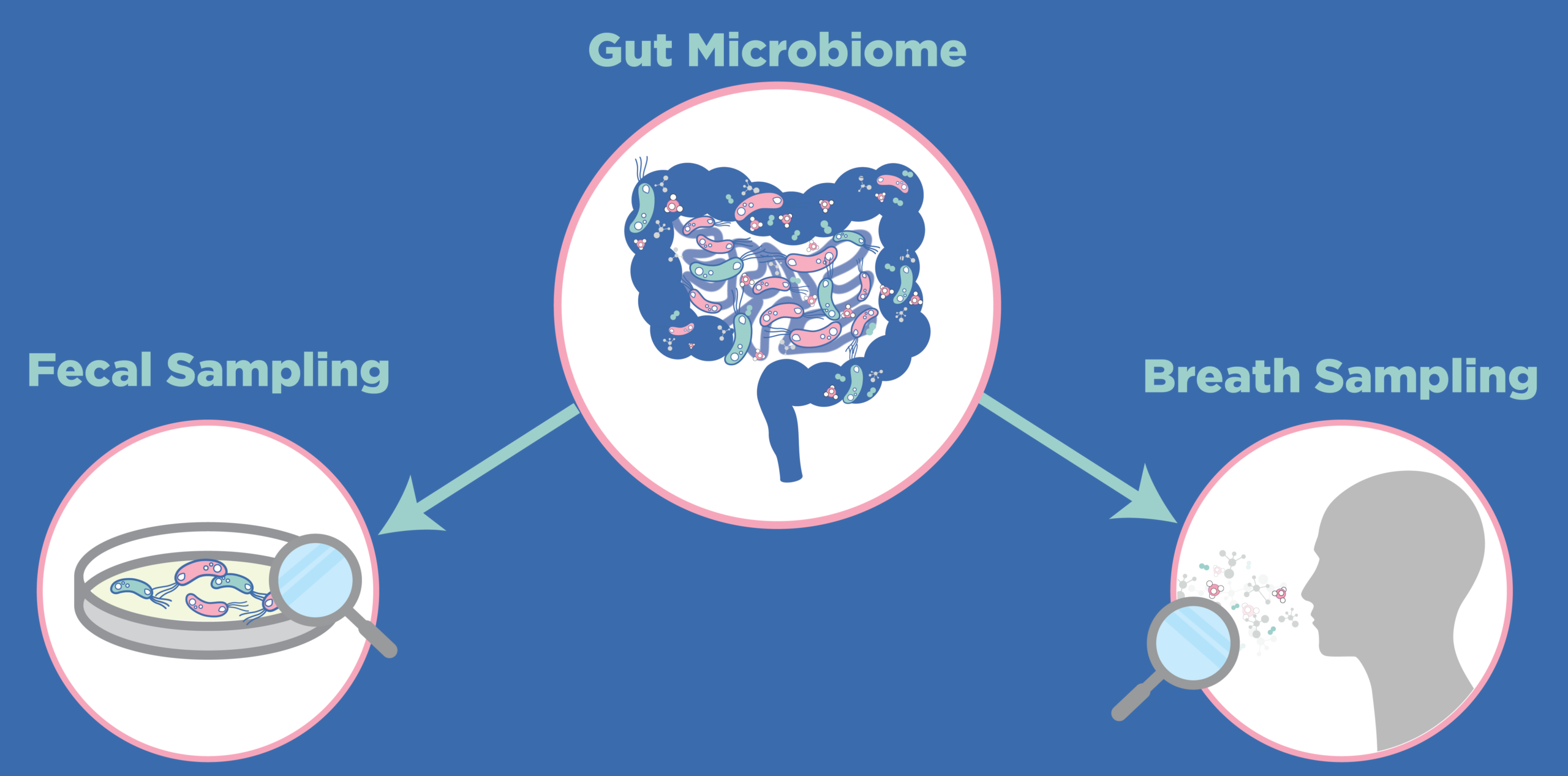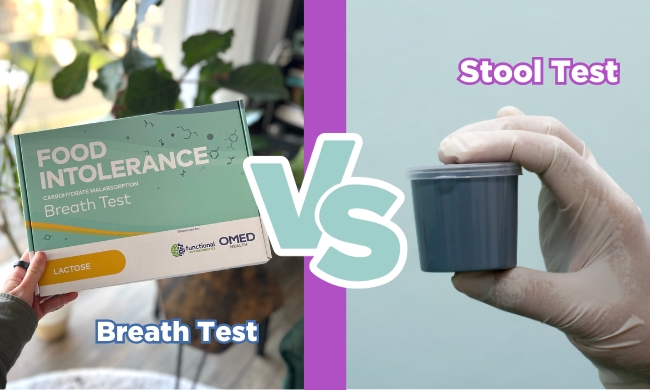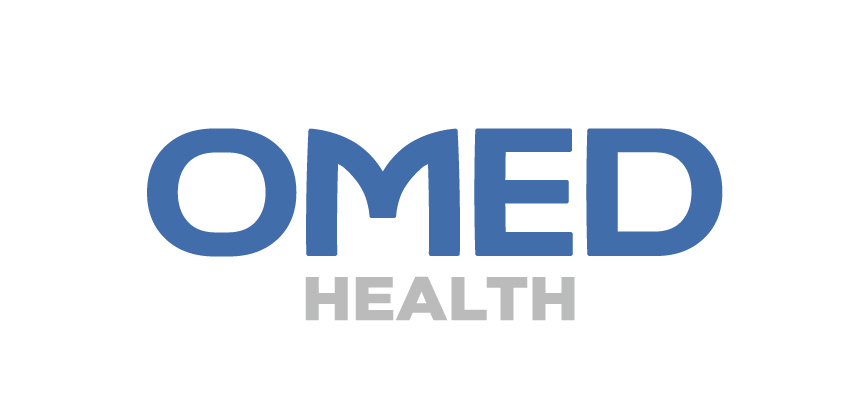An imbalance in the microbial composition of your gut can contribute to conditions such as small intestinal bacterial overgrowth (SIBO), irritable bowel syndrome (IBS), inflammatory bowel disease (IBD), and colorectal cancer (CRC). Invasive diagnostic tools are often required to diagnose these diseases, which can be expensive and unpleasant. In this blog, we’ll discuss the use of non-invasive fecal tests and breath tests to diagnose and manage gastrointestinal conditions and explore which might be able to offer you the most benefits based on your symptoms.
How can fecal matter and breath tell you what’s going on in your gut?
The community of microbes living within the gut – known as the gut microbiome – play a critical role in gut health, in a manner that has the potential to be both helpful and harmful (1). Diagnostic tests that provide information about the gut microbiome are, therefore, important tools for clinicians to utilize when guiding patients suffering from gut health symptoms. However, a major problem with historical methods of exploring the gut microbiome (e.g., colonoscopy) is their invasive nature, which causes anxiety and discomfort for patients and can be hard to access.
New techniques that can diagnose and monitor gastrointestinal diseases in a more non-invasive manner commonly utilize fecal or breath samples. Fecal samples usually analyze either the composition of the gut microbiome or markers of inflammation in the gut (e.g., fecal calprotectin). Breath samples can be used to measure gases that have been produced by your gut microbiome during the breakdown of food.
Many compounds that microbes produce are volatile (known as volatile organic compounds, or VOCs), which means that they are gaseous, and therefore can be found in the air emitted from biological samples such as fecal matter, urine, and in exhaled breath. The breakdown of dietary fiber is a key function of gut microbes that has important links to health (2). Fiber fermentation in the gut produces a broad range of VOCs such as short-chain fatty acids (SCFAs) and gases such as hydrogen, methane, and hydrogen sulfide (3).
Volatile compounds and gases produced in the gut can travel through the circulatory system to the lungs, and subsequently detected in exhaled breath. The specific patterns of VOCs and gases present in breath depend on the underlying metabolic states of both the microbes and human cells in the body, rendering them useful as biomarkers of gut health and disease.

What insights do fecal tests and breath tests each offer?
Commercially available fecal and breath tests generally give different information; fecal samples can provide information on the species composition of the gut microbiome over longer time frames, whereas breath testing can provide almost instantaneous information about compounds produced by the gut microbiome. This begs the question, is fecal sampling or breath sampling better for analysis of gut health?
The collection of fecal samples is often considered to be embarrassing, particularly by women who make up the majority of those who suffer from gut health issues (4). There are also several methodological reasons that a fecal sample may not provide the most up-to-date information about what’s going on in your gut. Certain bacterial species are not easily cultured in the lab and therefore will not be identified, bacteria are unevenly distributed in feces, and certain regions of the bowel may not be represented in feces at all (1).
The community of microbes present in feces may not be the most accurate representation of the gut microbiome, as many bacteria stick to the intestinal lining, and therefore may not detach to pass through the gut in feces.
Breath sampling is generally considered to be more comfortable for patients, which could improve uptake levels if it were used for diagnosis of gut health issues instead of fecal samples. Adherence to diagnostic tests is critically important for achieving good long-term monitoring and the development of effective management plans. This is especially relevant for the multifactorial and often complex factors that can contribute to gut health. There are several advantages that breath analysis has over fecal analysis:
- Important gases such as hydrogen and methane can easily be measured in exhaled breath in an accurate manner, which are difficult to monitor in fecal samples.
- VOCs on the breath are closer to real-time metabolism than feces. The time lag from the production of gases in the gut to the detectable presence in exhaled breath is approximately 5 minutes or less (5). This is compared to fecal transit time, which can take anywhere between 10 hours to several days (6).
- Breath samples can be collected repeatedly over a short period of time, and a large volume can also be collected as breath is a virtually inexhaustible resource. This makes monitoring gut health over long periods of time much easier, especially as breath samples can be easily collected at home.
Although breath samples cannot yet identify the presence of specific bacterial species, some information can be gained by proxy from breath – for example, the presence of methane in the breath suggests the presence of methanogen archaea within the gut (7). Ultimately a combination of tests can provide complementary analysis and broader information about your gut microbiome to help diagnose gastrointestinal conditions.
As long-term monitoring is particularly important for tracking the success of treatments, breath sampling may offer an easier method of frequent at-home sample collection. This is where OMED Health can help you.

We can support you to take control of your gut health!
Breath tests can measure hydrogen and methane gases which can help to diagnose and monitor underlying conditions such as SIBO and carbohydrate malabsorption conditions (e.g., fructose and lactose intolerance).
If you are interested in longer term monitoring, our Breath Analyzer and paired App will allow you to track your food intake, symptoms, and the corresponding hydrogen and methane levels on your breath. This gives you the ability to monitor the effectiveness of any prescribed medicines, changes in diet, over-the-counter medications, or other lifestyle changes you may make for the improvement of your digestive health.
You can also choose to work with one of our experts who will review your data and can define a treatment plan for you.
References
- Allaband C, McDonald D, Vázquez-Baeza Y, Minich JJ, Tripathi A, Brenner DA, et al. Microbiome 101: Studying, Analyzing, and Interpreting Gut Microbiome Data for Clinicians. Clin Gastroenterol Hepatol. 2019 Jan;17(2):218–30.
- Cronin P, Joyce SA, O’Toole PW, O’Connor EM. Dietary Fibre Modulates the Gut Microbiota. Nutrients. 2021 May 13;13(5):1655.
- Oliphant K, Allen-Vercoe E. Macronutrient metabolism by the human gut microbiome: major fermentation by-products and their impact on host health. Microbiome. 2019 Jun 13;7(1):91.
- Lee SY, Kim JH, Sung IK, Park HS, Jin CJ, Choe WH, et al. Irritable Bowel Syndrome Is More Common in Women Regardless of the Menstrual Phase: A Rome II-based Survey. J Korean Med Sci. 2007 Oct;22(5):851–4.
- Yu D, Cheeseman F, Vanner S. Combined oro-caecal scintigraphy and lactulose hydrogen breath testing demonstrate that breath testing detects oro-caecal transit, not small intestinal bacterial overgrowth in patients with IBS. Gut. 2011 Mar;60(3):334–40.
- Lee YY, Erdogan A, Rao SSC. How to assess regional and whole gut transit time with wireless motility capsule. J Neurogastroenterol Motil. 2014 Apr 30;20(2):265–70.
- Gaci N, Borrel G, Tottey W, O’Toole PW, Brugère JF. Archaea and the human gut: New beginning of an old story. World J Gastroenterol. 2014 Nov 21;20(43):16062–78.



